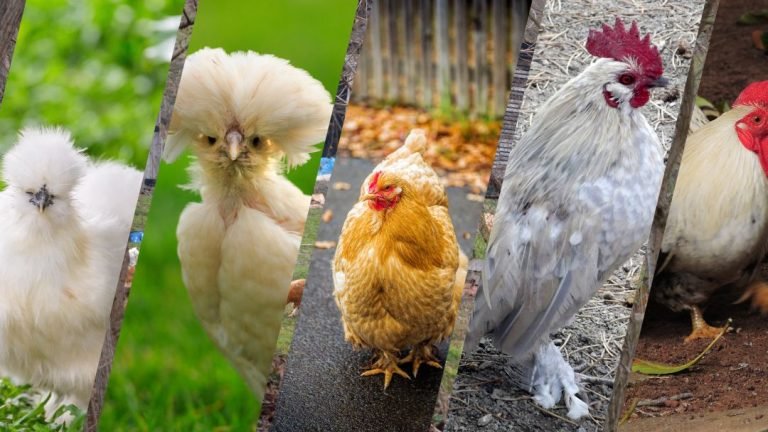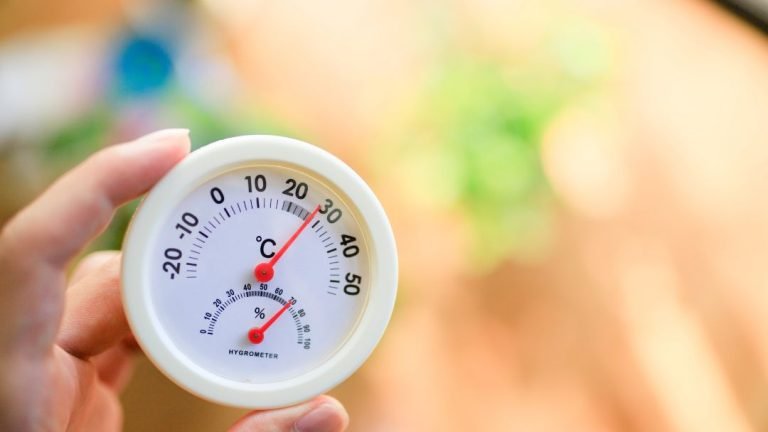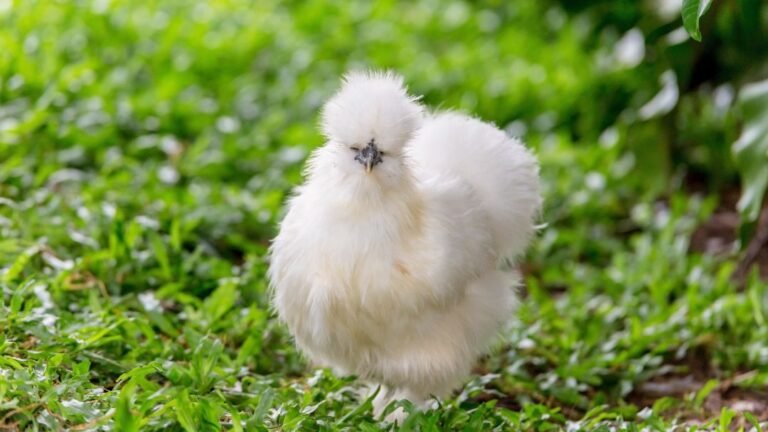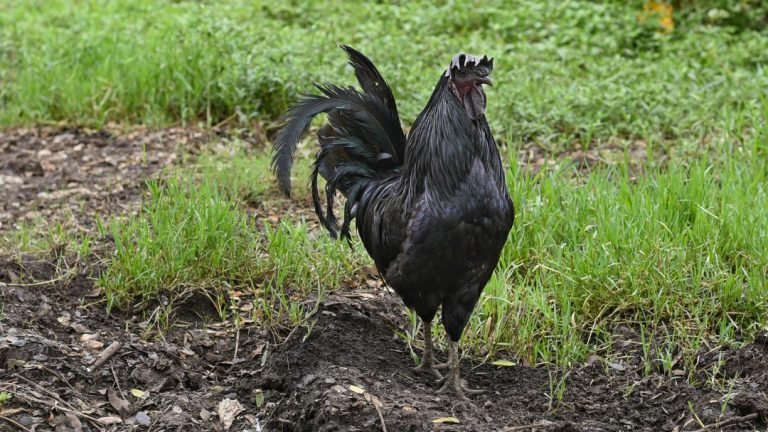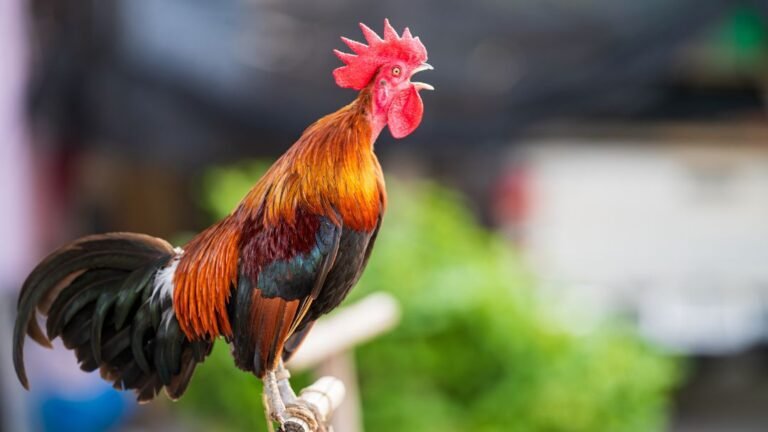Algae poisoning in chickens can be identified by signs of intoxication, such as diarrhea and weakness. If not treated promptly, it can be life-threatening to the chickens.
Algae poisoning is a serious concern for chicken owners as it can have detrimental effects on the health of their flock. Algae blooms, often triggered by warm weather and excess nutrients in the water source, can release toxins that contaminate the water and pose a risk to the chickens.
These toxins can be ingested when the chickens drink the contaminated water or feed on the algae themselves. Recognizing the signs of algae poisoning, such as diarrhea, weakness, and even sudden death, is crucial for early intervention. This article aims to provide information on the signs and symptoms of algae poisoning in chickens, as well as prevention and treatment options to ensure the well-being of your flock.
Recognizing The Signs Of Intoxication
As chicken owners, it is crucial to be observant and attentive to any changes in our flock’s health. Recognizing the signs of intoxication in chickens is essential for early detection and prompt treatment. Algae poisoning is one such concern that can have severe consequences if not addressed promptly. By monitoring your chickens closely and paying attention to their behavior and physical appearance, you can identify potential symptoms of algae intoxication before it’s too late.
General Weakness And Lethargy
One of the primary signs of intoxication in chickens is a notable general weakness and lethargy. Affected birds may appear tired and seem to lack their usual energy levels. They might be reluctant to move, stand stationary for prolonged periods, or isolate themselves from the rest of the flock. If you notice these signs, it’s important to investigate further to determine if algae poisoning is the cause.
Loss Of Appetite And Weight Loss
Algae poisoning can lead to a loss of appetite and subsequent weight loss in chickens. You may notice a decrease in their usual enthusiasm during feeding time, and their food bowl may remain relatively untouched. If you observe a significant drop in body weight or notice your chickens looking thin and emaciated, it’s vital to consider algae intoxication as a probable cause.
Diarrhea Or Abnormal Stool
Another sign that may indicate intoxication in chickens is diarrhea or abnormal stool. Affected birds may excrete watery droppings or feces with an unusual consistency, such as loose or excessively runny. Keep an eye out for any significant changes in their bowel movements, as this can provide crucial insights into their overall health condition.
Pale Combs And Wattles
Healthy chickens typically have vibrant red combs and wattles, but algae poisoning can cause a noticeable change in their coloration. If you observe that your chickens’ combs and wattles appear pale or discolored, it could be a sign of intoxication. These alterations in pigmentation can be attributed to the toxins present in the algae, which affect the blood circulation and oxygenation.
Increased Thirst And Excessive Drinking
Chickens affected by algae poisoning may exhibit increased thirst and excessive drinking behavior. You might notice them consuming larger amounts of water than usual or frequently seeking out water sources. This abnormal increase in thirst is a response to the toxins in the algae, which can lead to dehydration if not addressed promptly.
Respiratory Distress And Difficulty Breathing
In severe cases of algae intoxication, chickens may experience respiratory distress and difficulty breathing. Labored breathing, wheezing sounds, coughing, or sneezing could all indicate respiratory complications resulting from the toxins affecting the chicken’s respiratory system. If you notice any of these symptoms, immediate veterinary intervention is necessary to ensure your chicken’s well-being.
Being able to recognize the signs of intoxication in chickens is crucial for the timely detection and treatment of algae poisoning. By closely monitoring your flock and promptly addressing any unusual symptoms, you can help prevent serious complications and safeguard the health of your chickens.
Identifying Specific Symptoms
Neurological Symptoms
Chickens affected by algae poisoning may exhibit various neurological symptoms that can be easily identified. These symptoms are often indicative of the toxins produced by the algae impacting the nervous system of the birds.One common sign of neurological impairment in chickens suffering from algae poisoning is muscle tremors and spasms. These tremors may occur in different parts of the chicken’s body, such as the legs, wings, or neck. It is important to observe the chicken closely and notice any unusual, involuntary muscle movements.Another alarming symptom is paralysis or difficulty moving. Chickens affected by algae poisoning may experience a loss of muscle control, rendering them immobile or causing them to struggle while walking. The toxins produced by the algae can affect the motor functions of the birds, leading to this paralysis or difficulty in mobility.One peculiar neurological symptom that can manifest in chickens suffering from algae poisoning is head tilting and twisting. If you notice a chicken persistently tilting its head to one side or twisting its neck in an abnormal manner, it could be a sign of neurological damage caused by the toxins ingested from algae.Furthermore, seizures are another worrisome indication of neurological disturbance. Chickens experiencing seizures due to algae poisoning may exhibit uncontrollable convulsions or violent shaking. Seizures are a clear indication that the toxins from the algae have adversely affected the chicken’s brain and nervous system.Digestive Symptoms
Ingesting algae infested water or contaminated feed can cause a range of digestive symptoms in chickens. These symptoms typically occur as the toxins produced by the algae affect the gastrointestinal system of the birds.One noticeable digestive symptom is vomiting. Affected chickens may regurgitate their food or produce an excessive amount of white foamy material. Vomiting is the body’s way of eliminating the toxins ingested from the algae which have irritated the digestive tract.Another indication of algae poisoning in chickens is abdominal pain and bloating. You may observe the bird displaying signs of discomfort, such as a hunched posture and a distended abdomen. The toxins produced by the algae can cause inflammation and irritation in the digestive system, leading to these symptoms.Sometimes, algae poisoning can result in crop impaction. The crop, a part of the chicken’s digestive system responsible for temporarily storing food, can become impacted or blocked due to the toxins ingested. This can cause the chicken to experience difficulty swallowing or regurgitating food.Skin And Ocular Symptoms
Chickens affected by algae poisoning may develop various skin and ocular symptoms due to the toxins accumulating in their bodies.One common skin symptom is skin irritation and redness. You may notice the affected chicken exhibiting signs of discomfort, such as excessive scratching or pecking at its skin. The toxins produced by the algae irritate the skin, leading to redness and potential rash-like formations.Another indication of algae poisoning is eye inflammation and discharge. Affected chickens may have swollen, red eyes and discharge coming from their eyes. The toxins produced by the algae can cause irritation and inflammation in the delicate tissues surrounding the eyes, leading to these symptoms.Overall, a thorough observation of your chickens for these specific symptoms is necessary to identify whether they have been affected by algae poisoning. The timely recognition of these signs can help you take appropriate action to safeguard the health and well-being of your flock.Assessing Water Sources
Regularly Inspecting Ponds And Water Sources
Inspecting the ponds and other water sources regularly is essential to ensure the health and well-being of your chickens. Algae poisoning in chickens can occur due to the presence of toxic algae species in the water they consume. Therefore, it is crucial to keep a close eye on the condition of the water sources they have access to. By regularly inspecting the ponds and other water sources, you can identify any potential issues before they become a problem. This allows you to take prompt action to protect your chickens and prevent them from ingesting harmful algae.
Sampling And Testing Water Quality
Sampling and testing the water quality is a crucial step in assessing the suitability of water sources for your chickens. By periodically collecting samples and testing them for algae toxins, you can determine if the water is safe for your chickens to consume. This process helps you identify any potential contamination or the presence of harmful algae species that may pose a risk to your chickens’ health. With accurate water quality testing, you can make informed decisions about the suitability of the water sources and take necessary steps to ensure your chickens’ safety.
Monitoring For Algae Blooms
Staying vigilant for algae blooms is an important aspect of assessing water sources for your chickens. Algae blooms are rapid increases in the population of algae in water bodies, leading to visible discoloration or floating masses. These blooms can indicate the presence of toxic algae species that can harm your chickens if consumed. Regularly monitoring the water sources for any signs of algae blooms allows you to take immediate action to protect your chickens. By promptly addressing and mitigating algae blooms, you can minimize the risk of algae poisoning in your chickens and ensure their well-being.
Understanding The Growth Conditions Of Toxic Algae
Understanding the growth conditions of toxic algae is crucial in assessing the suitability of water sources for your chickens. Toxic algae species often thrive in warm, stagnant water with abundant sunlight and excess nutrients, such as phosphorus and nitrogen. Being aware of these conditions can help you identify potential sites where toxic algae may grow. By understanding the growth conditions, you can take preventive measures such as limiting nutrient inputs or implementing water circulation systems to reduce the risk of toxic algae growth. This proactive approach ensures that the water sources accessible to your chickens are less likely to contain toxic algae that can harm their health.
Implementing Management Techniques
Managing algae poisoning in chickens is crucial to ensure the health and well-being of your flock. By implementing effective management techniques, you can reduce the risk of intoxication and create a safe environment for your chickens to thrive. In this section, we will explore some essential strategies for pond management and water treatment options to control algae growth.
Proper Pond Management:
Proper pond management plays a significant role in preventing algae overgrowth and subsequent poisoning in chickens. By following these guidelines, you can maintain a healthy pond ecosystem:
- Regular vegetation maintenance: Removing excess vegetation from the pond’s surroundings and shallow areas helps limit nutrient availability for algae. This practice reduces the risk of algae blooms and the toxins they produce.
- Stocking with beneficial species: Introducing aquatic plants, such as water lilies or duckweed, can help in absorbing excess nutrients from the water. These plants compete with algae for resources, reducing their population.
- Aeration and water circulation: Installing aeration systems and water circulators can improve oxygen levels in the pond, creating an unfavorable environment for algae growth. Adequate oxygenation promotes the growth of beneficial microorganisms that can outcompete algae.
Water Treatment Options:
When managing algae growth, various water treatment options are available to control their proliferation effectively. Consider the following techniques:
Algaecides and chemical treatments:
Algaecides and chemical treatments can be effective in combating severe algae overgrowth. These treatments work by targeting and destroying algae cells, reducing their population in the pond. However, it’s crucial to use these treatments carefully and according to the manufacturer’s instructions to prevent any adverse effects on your chickens.
Biological controls:
Implementing biological controls is a natural and eco-friendly approach to managing algae growth. Introducing beneficial organisms, such as certain types of fish or aquatic snails, can help control algae populations by feeding on them. These biological controls can effectively limit algae growth without posing any harm to your chickens.
UV sterilization:
UV sterilization is a highly effective method of controlling algae growth in ponds. Installing UV sterilizers helps eliminate algae cells by exposing them to ultraviolet light. This technology disrupts the algae’s ability to reproduce, reducing their population and preventing further toxic blooms.
By implementing these pond management techniques and utilizing appropriate water treatment options, you can create a healthy and flourishing environment for your chickens. Regular monitoring and maintenance are key to preventing algae poisoning and ensuring the well-being of your flock.
Promoting Chicken Health And Safety
Providing Clean And Fresh Water
One of the key factors in promoting chicken health and safety is ensuring that they have access to clean and fresh water. Water plays a crucial role in the overall well-being of chickens, as it helps with digestion, regulates body temperature, and aids in the removal of toxins from their bodies.
To maintain optimal health, it is essential to regularly clean and refill their water containers to prevent the growth of harmful bacteria, algae, or other contaminants. Chickens can easily contract illnesses or suffer from dehydration if they consume contaminated or stagnant water. Therefore, it is important to prioritize their hydration needs by providing a constant supply of clean water.
Offering A Balanced Diet
A balanced diet is vital to ensure that chickens receive the necessary nutrients for their overall health and to prevent ailments such as algae poisoning. Including a variety of grains, seeds, vegetables, and fruits in their diet is crucial to meet their nutritional requirements. A balanced diet not only helps strengthen their immune system but also aids in the prevention of diseases.
It is advisable to provide chickens with a commercially prepared feed that is specifically formulated for their nutritional needs. These feeds are designed to provide the right balance of proteins, carbohydrates, fats, vitamins, and minerals needed to keep chickens healthy. Adding supplements, such as calcium or probiotics, can also enhance their overall well-being.
Ensuring Proper Ventilation In Chicken Coops
Proper ventilation is essential in maintaining a healthy environment for chickens. Good airflow helps remove excess humidity, ammonia, and any lingering odors, which can lead to respiratory problems or other health issues. Adequate ventilation in chicken coops promotes clean air and reduces the risk of bacterial or fungal growth.
When designing or maintaining a chicken coop, it’s crucial to consider air circulation. A well-ventilated coop provides fresh air and eliminates condensation, ensuring a comfortable and safe space for chickens. Providing proper insulation, windows, vents, or fans can contribute to maintaining optimal ventilation levels.
Quarantining New Birds Before Introducing Them To The Flock
Introducing new birds to an existing flock without proper precautions can lead to the spread of diseases, including algae poisoning. To avoid such risks, it is essential to quarantine new birds before integrating them with the rest. Quarantine allows for observation and identification of any potential health issues that the new birds may carry, preventing the transmission of diseases to the rest of the flock.
During the quarantine period, the new birds should be housed separately in a clean and sanitized area. Regular health checks should be conducted, looking out for signs of intoxication or any other symptoms. This helps ensure that the new birds are healthy and free from contaminants or diseases before being integrated with the rest of the flock.
Educating Chicken Owners On Algae Poisoning
Spreading Awareness About The Dangers Of Toxic Algae
One of the most crucial aspects of being a responsible chicken owner is understanding the potential risks associated with their environment. Algae poisoning is an alarming concern that every chicken owner should be aware of. Educating yourself about the dangers of toxic algae can help you prevent any harm to your feathered friends.
Providing Information On Symptoms And Prevention
Recognizing the symptoms of algae poisoning in chickens is vital in ensuring their well-being. Common signs include decreased energy levels, decreased appetite, diarrhea, and even neurological issues. By staying informed, you will be equipped to take prompt action and provide the necessary care to your chickens.
Prevention is always better than cure, and this holds true for algae poisoning as well. Taking precautionary measures can significantly reduce the risks. Keep your chickens away from stagnant water sources such as ponds or puddles where algae tend to thrive. Regularly clean and maintain their drinking water sources, ensuring that they are free of any potential contamination. Providing fresh and clean water for your chickens is crucial for their health and safety.
Sharing Resources For Water Testing And Treatment Methods
To ensure the safety of your chickens, it’s essential to periodically test the water sources they consume from. Testing kits are readily available in the market and can help you evaluate the water quality, including the presence of toxic algae. These kits typically come with detailed instructions on how to conduct the test and interpret the results correctly.
If you happen to detect algae in the water, there are treatment options available to eliminate or reduce its presence. Before taking any action, it is advisable to consult with a veterinarian experienced in poultry health. They can guide you on the appropriate treatment methods that will not harm the chickens.
Additionally, there are various online resources where you can find more information on water testing and treatment methods. These resources provide valuable insights and techniques used by experts in the field of chicken husbandry.
By spreading awareness about the dangers of toxic algae, providing information on symptoms and prevention, and sharing resources for water testing and treatment methods, we can ensure that chicken owners are well-equipped to protect their beloved flock from the harmful effects of algae poisoning.
Veterinary Care And Support
When it comes to algae poisoning in chickens, seeking veterinary care and support is crucial for the well-being and recovery of affected birds. Remember, prompt identification and intervention can make a significant difference in their chances of survival. Below, we discuss the necessary steps to follow to ensure your chickens receive the proper care and support they need.
Seeking Professional Advice In Case Of Suspected Poisoning
If you suspect that your chickens have been exposed to algae poisoning, it is essential to seek professional advice from a veterinarian specializing in poultry health. These experts possess the knowledge and experience to diagnose and treat the condition effectively. Delaying professional intervention can lead to worsening symptoms and increase the risk of fatality.
Prompt Treatment And Supportive Care For Affected Chickens
Upon visiting a poultry veterinarian, prompt treatment should be initiated to mitigate the effects of algae poisoning. Treatment methods may include:
- Administering activated charcoal or other appropriate binders to help absorb and eliminate toxins from the chickens’ digestive tract.
- Providing intravenous fluids to counter dehydration caused by the poisoning.
- Supplementing with vitamins and minerals to support the birds’ weakened immune systems.
- Implementing supportive care measures such as warm, comfortable bedding and a calm environment to help reduce stress.
It is important to follow the veterinarian’s instructions closely and administer any prescribed medications or treatments as directed. Regular check-ups are critical to monitor the chicken’s progress and make any necessary adjustments to the treatment plan based on their response.
Monitoring The Recovery Process And Seeking Follow-up Care
Once the initial treatment has been administered, monitoring the recovery process is essential. Observing the chickens closely for any changes in behavior, appetite, or overall well-being is crucial. If any concerning symptoms persist or worsen, contacting the veterinarian immediately is strongly advised.
Additionally, it is recommended to schedule follow-up appointments with the veterinarian to assess the chicken’s progress. These check-ups allow the vet to evaluate the effectiveness of the treatment and make any further recommendations to support the chicken’s complete recovery.
In conclusion, when it comes to algae poisoning in chickens, seeking professional veterinary care and support is paramount. Acting promptly, administering necessary treatment, and monitoring the recovery process are key to increasing the chances of a successful outcome. Remember to consult with a poultry veterinarian and adhere to their guidance throughout the entire process.
Conclusion
To protect your flock from algae poisoning, it is vital to recognize the signs of intoxication and take immediate action. Remember to closely monitor the water sources and feed given to your chickens, ensuring they are free from harmful algae.
By being proactive in preventing algae poisoning, you can safeguard the health and well-being of your feathered friends. So stay vigilant, prioritize their safety, and enjoy the benefits of a happy and healthy flock.

